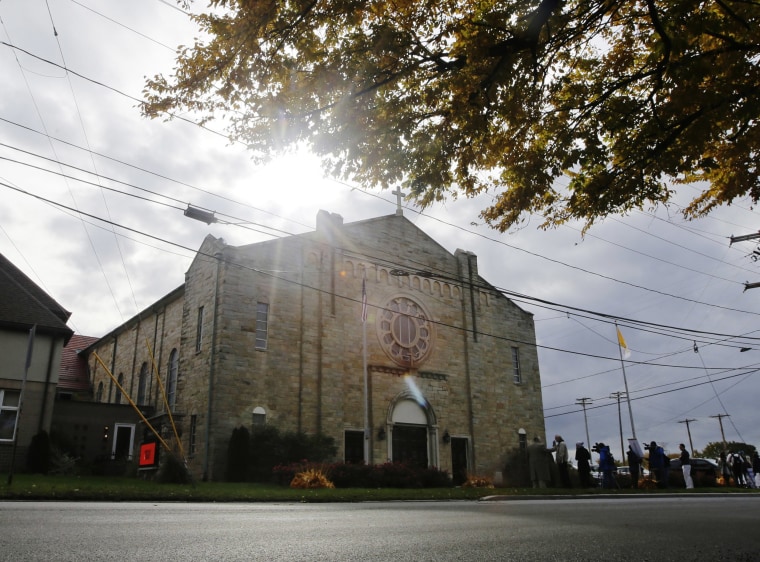VATICAN CITY — Pope Francis on Wednesday accepted the resignation of Buffalo Bishop Richard Malone following widespread criticism from his staff, priests and the public over how he handled allegations of clergy sexual misconduct.
The Vatican announced the resignation in a brief statement, adding that Francis had named the bishop of Albany, New York, Edward Scharfenberger, to run the Buffalo diocese temporarily until a permanent replacement is found.
The Vatican didn’t say why Malone was resigning two years before the mandatory retirement age of 75. However, the Vatican conducted a recent investigation into the western New York diocese and Malone’s handling of abuse cases.
The diocese has been named in more than 220 recent lawsuits by people who claim they were sexually abused by priests.

"Spotlight" lawyer Mitchell Garabedian, who represents 38 people who have filed suit in Buffalo, said Malone's exit "provides hope to clergy sexual abuse victims that morality with prevail." But he said he hopes Francis will not be rewarded with a top Vatican post the way Cardinal Bernard Law was after he was ousted for covering up for predatory priests in Boston.
"Pope Francis should not give Bishop Malone a promotion such as to a Basilica in Rome," Garabedian said in a statement. "The immorality of Bishop Malone should not be rewarded with a promotion."
Many of the claims date back decades, long before Malone’s arrival in Buffalo in 2012. But critics say there have been more recent missteps by Malone, including his decision to return to ministry a priest who had been suspended by a previous bishop for including “love you” in a Facebook message to an eighth-grade boy.
Malone later endorsed the same priest for a job as a cruise ship chaplain, even after he was also accused of making unwanted advances toward young men.
Malone has admitted to making mistakes in cases involving adult victims, but he had firmly refused to resign.
Pressure though on him to leave has been intense.
Over the past year, two key members of Malone’s staff have gone public with concerns about his leadership, including his former secretary, the Rev. Ryszard Biernat, who secretly recorded Malone calling a then-active priest “a sick puppy,” but taking no immediate action to remove him.
Earlier, his executive assistant, Siobhan O’Connor, leaked internal church documents after becoming concerned that Malone had intentionally omitted dozens of names from a publicly released list of priests with credible allegations of abuse.
In September, a group of lay Catholics that had been working with Malone to restore trust in the church instead joined in calls for his resignation.
A diocesan priest, meanwhile, has been circulating a “no confidence” letter for signatures.
The Vatican recently conducted an inquiry into the Buffalo diocese to get to the bottom of the problems. Bishop Nicholas DiMarzio, who led the inquiry, said he’d finished his work after making three trips to western New York and interviewing about 80 people in and outside the church.
DiMarzio’s report to the Vatican has not been made public.
Among those who have called for Malone’s resignation is the former dean of seminarians at the diocese’s Christ the King Seminary. In a letter outlining his decision to withdraw from his studies to become a priest, Stephen Parisi called the diocese’s handing of clerical sexual abuse cases “disgusting and revolting” and raised questions about the institution’s academic practices and oversight.
Malone in April suspended three priests after several seminarians complained the older men subjected them to disturbing and offensive sexual discussions during a party at a rectory.
In refusing previous calls to step down, Malone had said he wanted to be part of the “renewal” of the diocese.
The diocese has paid out more than $18 million to more than 100 victims under a compensation program established last year. Since August, it has been named in a wave of new lawsuits under a New York state law that suspended the usual statute of limitations and opened a one-year window for victims to pursue claims regardless of when the abuse happened.
Attorneys general in several states, including New York, have begun civil investigations into how the Catholic church reviewed and potentially covered up abuse.